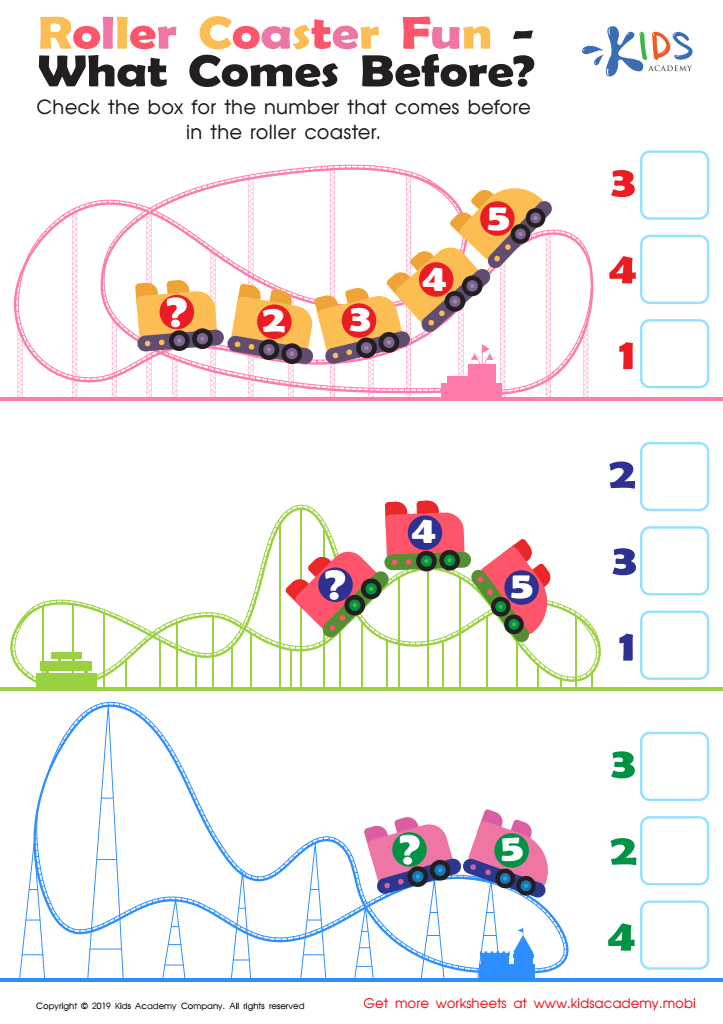Developing logical reasoning Worksheets for Kids
1 filtered results
-
From - To


Roller Coaster Fun Worksheet
Question/Answer
Why is the Developing logical reasoning skill important for Preschool students?
Developing logical reasoning skills in preschool students is crucial because it lays the foundation for critical thinking and problem-solving abilities. These skills help children understand the world around them, make connections between concepts, and become effective learners. Early development of these skills contributes to academic success and better decision-making in everyday situations as they grow.
How to test a Preschool student’s Developing logical reasoning skills?
To test a preschool student's developing logical reasoning skills, engage them in activities that require sorting objects by size, color, or type, solving simple puzzles, answering "what comes next" in a sequence, and discussing cause and effect in simple story scenarios. Observing their problem-solving approaches during play can also provide insights into their logical reasoning abilities.
How to train the Developing logical reasoning skill in Preschool students learning about Numbers?
To train logical reasoning in preschoolers learning about numbers, use hands-on activities like sorting objects by size or color, simple pattern recognition games, and number sequencing puzzles. Introduce problem-solving through storytelling that involves numeric concepts. Incorporating visual aids, such as number charts or blocks, can also help. Encourage questioning and exploration to foster curiosity and deepen understanding.
 Assign to the classroom
Assign to the classroom











